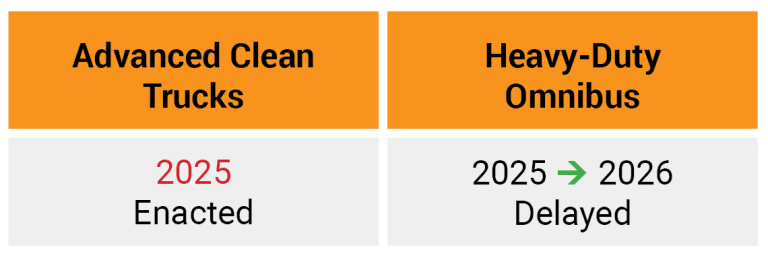The State of Oregon implemented the California’s Advanced Clean Trucks (ACT) in January 2025. Oregon had also considered implementing California’s Heavy-Duty Omnibus (Omnibus) regulation in 2025, but has issued an emergency rule to delay implementation until 2026 based on the economic damage California is suffering from implementing a flawed rule.
Since the California Air Resources Board adopted its medium and heavy-duty electric truck regulations, ten other states have voluntarily agreed to adopt California’s regulations. That was then, not now. Recognizing that the regulations are economically and technologically infeasible, several states have delayed enforcement, in whole or in part. Oregon, New Jersey, New York, and other states are proposing delays.

Representatives Diehl and Shelly Boshart-Davis have introduced House Bill 3119, which would delay the ACT until 2027.
Track the status of the bill here.
States can look to California to see that the regulations have not incentivized truck manufacturers to build electric trucks that meet a tow truck’s performance and safety standards, leading to an 80% decline in combustion truck sales in California in the first year of implementation. 2025 is starting out even worse. Tow truck operators and others are not able to upgrade older, higher emission trucks to the most modern, cleanest emission vehicles available.
If states want to avoid California’s massive decline in combustion engine sales, contact your elected leaders and warn them that the regulations threaten small businesses, jobs, and the motoring public.
You have a voice in the political process. Join us.